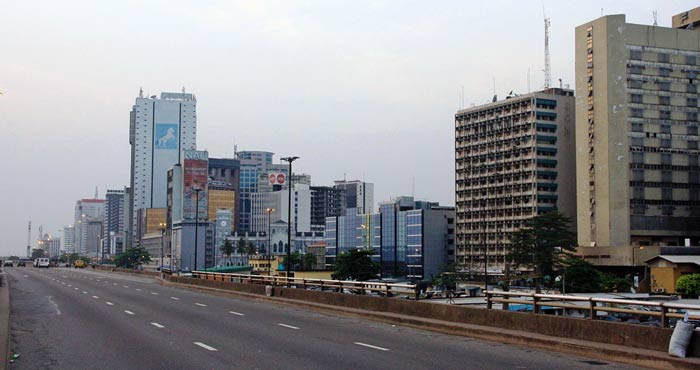Lagos is the most populous city in Nigeria the largest country in Africa. The metropolitan area of Lagos, an estimated 300 square kilometers, is largely made up of a group of islands with creeks and a lagoon. Lagos, one of the world’s fastest growing mega-cities, is home to over 21 million people. Lagos is also the largest and most populated city in sub-Saharan Africa.
Lagos was originally known as Eko – a name derived from either ‘Oko’ a word meaning “cassava farm” in Yoruba, or ‘Eko’ meaning “war camp” in Benin. The indigenous population are of Benin and Awori Eko heritage.
The city was named ‘Lagos‘ meaning ‘lakes‘ by the Portuguese. In the fifteenth century, the city became a Portuguese trading post exporting ivory, peppers, and Africans into slavery. The city was subsequently taken over by the British, who began exporting food crops after outlawing slavery in 1807.
Lagos was declared Nigeria’s capital in 1914. And remained thus until 1991 when the capital was moved to Abuja.
After the Nigerian Biafran war which broke out in 1967 and ended in 1970, migration to the city, coupled with huge waves of refugees and migrants from other African countries produced a population boom that has continued to the present day.
The economic bustle of Lagos is greatly driven by Nigeria’s natural resources of oil, natural gas, coal, wood and water.
Lagos is the commercial and industrial hub of Nigeria, with a GNP (Gross national product) triple that of any other West African country. (Lagos city website)
Lagos accounts for over 60 percent of Nigeria’s industrial and commercial activity, 70 percent of the national maritime cargo freight, over 80 percent of international air traffic into Nigeria and 58.30 percent of domestic air traffic. Making the city of city a driving force behind Nigeria’s booming economy, and hence one of the giants of a rising Africa.
Since 1985, the leadership and people of Lagos have maintained a steadfast commitment in implementing state urban renewal plans focused on infrastructure such as good roads and drainage channels and providing water supply, electricity, schools and health clinics.
“As the fastest growing economy in sub-Saharan Africa, Nigeria is therefore a key player in the African economy, having also been identified as one of the ‘Next Eleven’ – eleven countries that have a high potential of becoming, along with the BRIC countries, the world’s largest economies in the 21st century. While you are here in Lagos experience the spirit of Lagos – a spirit of hope; a spirit of creativity and a spirit of determination to find the opportunity in every challenge and use it as a stepping stone on our path to economic prosperity.” (Lagos State Governor, Mr. Babatunde Fasholaan in an address to the International Bar Association (IBA) Conference in Lagos, November 2013)
Africa City Spotlight: Lagos, Nigeria
The next time you are on the move, would you consider adding Lagos, Nigeria to your list of places to go? Leave a comment.

